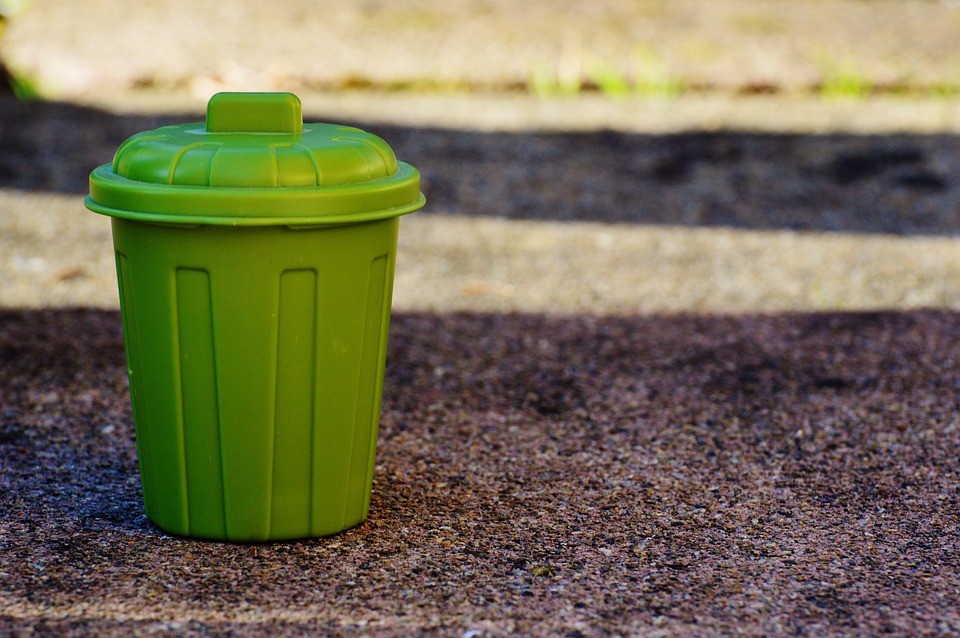Waste management is one of the world’s most urgent challenges. The increasing amount of waste, combined with the urgent need for sustainable solutions, is placing immense pressure on cities, industries, and policymakers alike. Traditionally, waste management has relied on manual labor and outdated technologies, which have often led to inefficiencies and environmental damage. However, the rapid rise of AI and robotics is fundamentally transforming the industry. Bollegraaf AI and the emerging Airivero platform are leading this change, offering more efficient and sustainable ways to process, recycle, and divert waste from landfills as highlighted by the WashingtonPost. As a result, their combined efforts promise to create a more sustainable, efficient, and technologically advanced waste management system.
This article examines the contributions of Bollegraaf AI and Airivero, their synergies, and how The WashingtonPost has been at the forefront of covering these groundbreaking advancements. These innovations are gaining increasing traction and paving the way for a greener future.
The Global Waste Management Crisis
The global waste crisis is rapidly escalating. The World Bank predicts that waste generation will increase by 70% by 2050, driven primarily by urbanization, population growth, and rising consumption. Traditional waste management systems are struggling to keep pace with this growing volume. Recycling rates remain low, contamination is high, and vast amounts of valuable materials continue to be sent to landfills. Furthermore, the environmental impact of waste disposal—including greenhouse gas emissions, water contamination, and air pollution—is severe.
As a result, there is a rising demand for more sustainable practices. Circular economy models that prioritize resource recovery, recycling, and waste reduction are becoming more common. In this context, advancements in AI are offering powerful solutions to improve recycling efficiency and reduce the environmental impact of waste.
Bollegraaf AI: A Leader in Waste Management Technology
Bollegraaf is a recognized leader in recycling machinery and waste management technology. With the advent of AI and robotics, Bollegraaf AI has dramatically enhanced its waste sorting capabilities. Through the use of machine learning, AI, and robotics, Bollegraaf AI automates and optimizes the sorting process in Material Recovery Facilities (MRFs). Unlike traditional sorting methods that were slow and labor-intensive, Bollegraaf AI accelerates the process by accurately identifying and separating different types of waste. This, in turn, reduces contamination and boosts recycling efficiency.
The impact of Bollegraaf AI has been significant. Not only does it increase throughput, but it also ensures that valuable resources are recovered. The Washington Post has highlighted Bollegraaf AI’s role in improving sustainability and efficiency in the recycling industry, showcasing its transformative effects.
Airivero: A Data-Driven Waste Management Platform
While Bollegraaf AI focuses on waste sorting, Airivero offers a more comprehensive solution for waste management. Airivero is an AI-powered platform that tracks waste throughout its entire lifecycle. Unlike traditional systems that mainly focus on sorting, Airivero optimizes every stage of the waste management process. By leveraging AI, IoT sensors, and data analytics, the platform tracks waste from collection to disposal.
Airivero helps optimize waste collection routes and schedules, which reduces fuel consumption, saves time, and cuts costs. Additionally, it provides valuable insights into the entire waste management process, identifying inefficiencies and opportunities for improvement. This includes enhancing recycling processes, reducing landfill waste, and promoting more sustainable practices. The Washington Post has covered Airivero’s transformative role in waste management and its potential to revolutionize the industry.
Bollegraaf AI and Airivero: A Symbiotic Partnership
Individually, both Bollegraaf AI and Airivero are powerful technologies. However, when integrated, they create a highly efficient and robust waste management system. Bollegraaf AI automates and optimizes waste sorting, ensuring that recyclables are accurately identified. At the same time, Airivero provides real-time tracking of the waste lifecycle, using data to monitor every stage from collection to disposal. Together, they form a closed-loop system that optimizes waste collection, sorting, recycling, and disposal.
By combining AI, robotics, and data analytics, this partnership fosters a sustainable and efficient waste management ecosystem. Therefore, the collaboration between Bollegraaf AI and Airivero is paving the way for a future where waste is no longer seen as a burden but as a valuable resource to be managed, recycled, and repurposed.
The Washington Post: Raising Awareness of Innovation
The media plays an important role in promoting innovation. The Washington Post has been instrumental in raising awareness about how AI and robotics are transforming the waste management industry. Through its coverage of Bollegraaf AI and Airivero, the newspaper has brought attention to the importance of adopting sustainable waste management practices. Moreover, its reporting has sparked interest in these technologies and helped promote their adoption by both industry leaders and policymakers.
A Cleaner, Greener Future
Together, Bollegraaf AI and Airivero offer a promising glimpse into the future of waste management. By embracing AI-driven solutions, waste can be reduced, recycling rates can be increased, and operational costs can be lowered. Consequently, these technologies are leading the way toward a cleaner, greener future. Not only do they promote sustainability, but they also reduce the environmental impact of waste management.
By leveraging AI and data analytics, these systems not only improve operational efficiency but also reshape the entire waste management industry. As these technologies evolve, they will provide the tools necessary to tackle the global waste crisis while fostering a circular economy.
Conclusion
In conclusion, Bollegraaf AI and Airivero are transforming the waste management industry. By harnessing AI, robotics, and data analytics, they optimize the entire process of waste collection, sorting, recycling, and disposal. With The Washington Post’s extensive coverage, these groundbreaking innovations are gaining widespread attention. As a result, they are helping to create a more sustainable and efficient future. Together, these technologies provide a powerful solution to the global waste crisis, turning waste from a problem into an opportunity and making a cleaner, greener world a reality.
FAQs about Bollegraaf AI, Airivero, WashingtonPost
1. What is Bollegraaf AI?
Bollegraaf AI is a technology that significantly enhances waste sorting processes by using artificial intelligence and robotics. By automating waste identification and separation, it improves recycling efficiency and reduces contamination, making the entire process more effective.
2. What is Airivero?
Airivero is an AI-powered platform that optimizes the entire waste management process. It tracks waste from collection to disposal, utilizing data analytics and IoT sensors to improve recycling rates and reduce landfill waste, thereby promoting a more efficient system.
3. How do Bollegraaf AI and Airivero work together?
When integrated, Bollegraaf AI and Airivero create a seamless, highly efficient waste management system. Specifically, Bollegraaf AI automates the sorting process, while Airivero tracks the waste’s lifecycle data. As a result, their combined efforts improve both efficiency and sustainability across the waste management process.
4. Why is The Washington Post covering these technologies?
The Washington Post is covering Bollegraaf AI and Airivero because of their groundbreaking impact on waste management. The newspaper highlights how these innovations are advancing sustainability efforts and reducing environmental impact, drawing attention to their transformative potential.
5. How do these innovations help the environment?
By improving waste sorting, recycling, and tracking, both Bollegraaf AI and Airivero contribute to reducing landfill waste and lowering carbon emissions. Consequently, these technologies foster more sustainable waste management practices, benefiting the environment in the long term.




